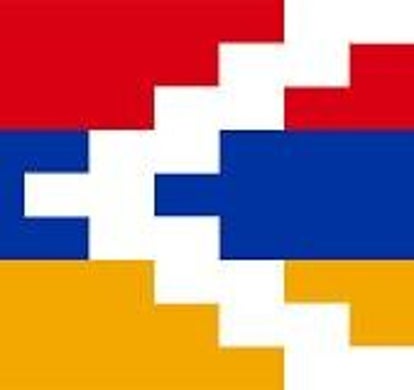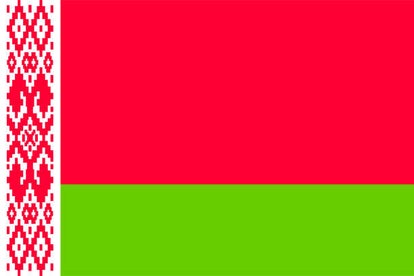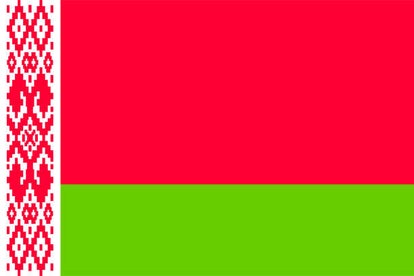Abkhas Anthem for Brass Quintet
Abkhas Anthem for Brass Quintet
An arrangement of the Abkhas Anthem for Brass Quintet. Aiaaira (in Abkhaz: Victory) is the national anthem of the Republic of Abkhazia. The state anthem was adopted when Abkhazia declared independence in 1992. After Sergey Bagapsh was elected president, a draft law was issued “On the State Anthem of the Republic of Abkhazia” and passed on a third reading on October 24, 2007. The Abkhaz anthem is based on the opening motif and lyrics of the Abkhaz revolutionary-liberation song “Kyaraz” from the period when Abkhazia was occupied by troops of the Georgian Democratic Republic.
Abkhazia is an autonomous area of Georgia. It declared independence July 23, 1992, which has been recognized only by Russia and a few other states. The lyrics were inspired by an Abkhaz revolutionary song during Georgia’s first period of independence in the early 20th century and were written shortly after Abkhazia’s declaration of independence. The anthem has been in use since its creation and was officially adopted in 2007.
"Himni i Flamurit" ('Hymn to the Flag') is the national anthem of Albania, adopted in 1912. Its music is derived from the Romanian patriotic song "Pe-al nostru steag e scris Unire", composed by Ciprian Porumbescu. The lyrics, was written by Albanian poet Asdreni. The anthem was originally titled "Betimi mbi Flamur" ("The Pledge on the Flag).
On 21 April 1912, "Betimi mbi Flamur" was first published as a poem in Liri e Shqipërisë (Freedom of Albania), an Albanian newspaper in Sofia, Bulgaria. It was later printed in a volume of poems by Drenova titled Ëndra e lotë (Dreams and Tears) which was published in Bucharest. According to Lasgush Poradeci's memoirs, the anthem, created by the adaptation of the text to the music, was not originally intended to be a national anthem, but it was so well liked by the people that it was proclaimed as the national anthem in 1912, and it was with its music that the Albanian flag was raised during the Albanian Proclamation of Independence in Vlore.
The Artsakh republic (formerly Nagorno-Karabagh) was an area within Azerbaijan populated by Armenians. A de facto government, closely allied with Armenia, declared independence in 1992. Rather than adopting the anthem of Armenia, a unique anthem of their own was in use until, due to the war with Azerbaijan, the government of the country collapsed September 28, 2023, formally dissolving the state January 1, 2024.
The Artsakh republic (formerly Nagorno-Karabagh) was an area within Azerbaijan populated by Armenians. A de facto government, closely allied with Armenia, declared independence in 1992. Rather than adopting the anthem of Armenia, a unique anthem of their own was in use until, due to the war with Azerbaijan, the government of the country collapsed September 28, 2023, formally dissolving the state January 1, 2024.
"Our Fatherland" is the national anthem of Armenia. It was arranged by Barsegh Kanachyan; the lyrics were written by Mikayel Nalbandian. First adopted in 1918 as the anthem of the short-lived First Republic of Armenia, it was subsequently banned after the country was invaded by then incorporated into the Soviet Union. Following the dissolution of the Soviet Union and the restoration of sovereignty in 1991, the song was re-adopted as the national anthem, albeit with slightly modified lyrics.
"Azərbaycan marşı" (pronounced [ɑːzæɾbɑjˈdʒɑn mɑɾˈʃɯ]; lit. 'Azerbaijan March') is the national anthem of Azerbaijan. The music was composed by Uzeyir Hajibeyov, and the lyrics were written by poet Ahmad Javad or cultural figure and politician Jamo bey Hajinski. The government officially adopted the anthem in 1920, with the passage of the decree, "On the State Hymn of the Republic of Azerbaijan". In 1992, after the fall of the Soviet Union, Azerbaijan's government officially restored "Azərbaycan Marşı" as the national anthem.
The State Anthem of the Republic of Belarus,[a] better known as "We Belarusians",[b] is the national anthem of Belarus. It was originally written in the 1940s and adopted in 1955 for use in the Belarusian Soviet Socialist Republic.[1] The music of the Belarusian SSR anthem was composed by Niescier Sakałowski and the lyrics were written by Michas Klimkovič. After the dissolution of the Soviet Union, the music composed by Sakalowski was kept and the lyrics were discarded. New lyrics, which were written by Klimkovič and Uładzimir Karyzna,[2] were adopted by a presidential decree issued on 2 July 2002.
The National Anthem of Bosnia and Herzegovina was composed in 1998 by Dušan Šestić and was adopted provisionally in 1999, before being made official in 2001. It has no official lyrics, though unofficial lyrics have been written for it.
"Mila Rodino" (Мила Родино, IPA: [ˈmiɫɐ ˈrɔdino]; lit. 'Dear Motherland') is the national anthem of Bulgaria. It was composed and written by Tsvetan Radoslavov as he left to fight in the Serbo-Bulgarian War in 1885. It was adopted in 1964. Its lyrics have been changed many times, most recently in 1990. On 12 July 1991, the anthem was shortened to its first verse along with the chorus.
The lyrics of "Our Fatherland" were derived from "The Song of an Italian Girl" (Armenian: Իտալացի աղջկա երգը Italatsi aghjka yergė), a poem written by Mikael Nalbandian in 1861.[1][2][3][4] In the early 20th century, the music was composed by Barsegh Kanachyan. Subsequently, both the lyrics and music were adopted as the national anthem of the First Republic of Armenia, which briefly existed from 1918 to 1920.
"Azərbaycan marşı" (pronounced [ɑːzæɾbɑjˈdʒɑn mɑɾˈʃɯ]; lit. 'Azerbaijan March') is the national anthem of Azerbaijan. The music was composed by Uzeyir Hajibeyov, and the lyrics were written by poet Ahmad Javad or cultural figure and politician Jamo bey Hajinski. The government officially adopted the anthem in 1920, with the passage of the decree, "On the State Hymn of the Republic of Azerbaijan". In 1992, after the fall of the Soviet Union, Azerbaijan's government officially restored "Azərbaycan Marşı" as the national anthem.
The anthem must be performed in accordance with the lyrics and sheet music established by law. Each day, all national free to air radio stations and television networks across the country are required to play it twice; at 06:00 when going on air and again at 00:00 upon going off air. The anthem can also be performed on certain occasions, such as at government meetings, before sporting events and presidential inaugurations. While the anthem is being performed, citizens are required to stand at attention and those in military or police uniform must to be in Full Russian-style hand salute (if not in formation).
The Bosnian and Herzegovinian anthem is one of very few national anthems to be protected under copyright. The copyright to the anthem is owned by the state of Bosnia and Herzegovina.














